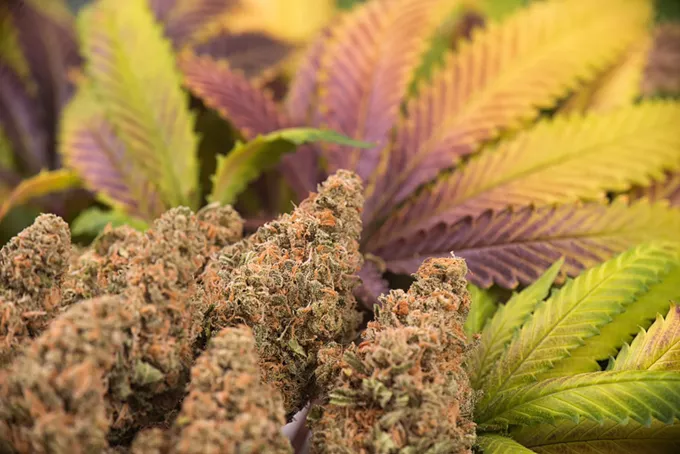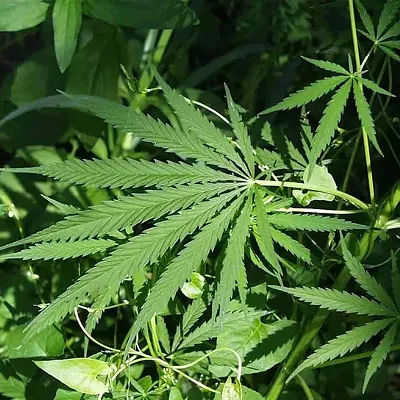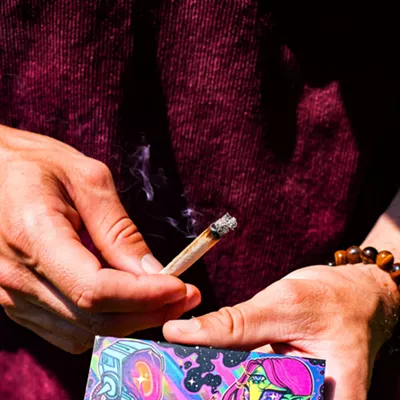In a tweet that the Pima County Democratic Party called “an important campaign ad,” Louisiana Democratic Senate candidate Gary Chambers debuted his campaign with “37 Seconds,” which featured Chambers smoking a fat blunt while he talked about the damage the War on Drugs has done to communities of color.
As of Jan. 24, the video had more than 6.5 million views on Twitter since it was posted on Jan. 18, along with another million-plus on Instagram. The ad has also been covered by multiple outlets, including Rolling Stone.
“I hope this ad works to not only destigmatize the use of marijuana, but also forces a new conversation that creates the pathway to legalize this beneficial drug, and forgive those who were arrested due to outdated ideology,” Chambers wrote in his original Tweet.
The ad featured Chambers, a Black man, smoking a large blunt with a voiceover addressing racial disparity in marijuana arrests and citing the amount of money spent in the U.S. chasing down pot smokers like they’re cartel drug lords.
“Every 37 seconds, someone is arrested for possession of marijuana,” Chambers said in his video. “Since 2010, state and local police have arrested an estimated 7.3 million Americans for violating marijuana laws, over half of all drug arrests. Black people are four times more likely to be arrested for marijuana laws than white people. States waste $3.7 billion enforcing marijuana laws every year. Most of the people police are arresting are not dealers, but rather people with small amounts of pot, just like me.”
The information comes from an oft-cited 2020 ACLU study titled, “A Tale of Two Countries: Racially Targeted Arrests in the Era of Marijuana Reform,” that also reports in some states, Black people were up to 10 times more likely to be arrested. Additionally, since 2010, racial disparities in pot arrests have actually grown in 31 states.
While Chambers was trending on Twitter, the Pima County Democratic Party joined in and called out the video for its message.
According to PCDP Chair Bonnie Heidler, while the organization does not condone smoking weed on a campaign ad, that should not detract from an important message.
“You have to listen to what he says,” Heidler told the Weedly. “We don’t think he should be smoking marijuana on a campaign ad, but we believe what he’s saying is true. We need to start changing laws so they do not impact the most vulnerable [members of society].”
Heidler likened pot prohibition to alcohol prohibition, adding that alcohol takes much more of a toll on the human body and can be more damaging with heavy use. She also said prohibitionists’ fears of “reefer madness” are overblown and detrimental to the debate on legalization.
“On a federal level, we want [legalization] passed because of the damages current laws inflict on the communities most affected [by current policy],” she said. “It’s not like every kid is going to go out and eat gummies like [prohibitionist groups] portray. It’s because of what it does to the communities. That’s the point we were trying to make.”
While the PCDP may not agree with the “optics” of a campaign ad featuring a large, Black man in a blue suit sitting in a recliner in the middle of a field smoking a blunt, the Weedly thinks it is a much better look than a moronic white woman toting an AR-15, shooting at pictures of Democratic elected officials with bullseyes painted on their faces.
Chambers has vowed to back expungements and banking bills—such as the ever-present, never-passed SAFE Banking Act—if elected to Congress. Several news outlets have reported a bump in donations in what is now a nationally high-profile campaign
You saw it here first: A number of news reports dropped earlier this month regarding a study at Oregon State University finding that some compounds in hemp may help inhibit COVID’s ability to enter cells.
“These compounds can be taken orally and have a long history of safe use in humans,” Richard van Breemen, a researcher with Oregon State’s Global Hemp Innovation Center, said in a statement announcing the Center’s findings. “They have the potential to prevent as well as treat infection by SARS-CoV-2.”
Way back in the dark days of July 2020, the Weedly reported on two other studies into the efficacy of cannabinoids as potential treatment for the pathogen. One was a Canadian study that was a collaboration between the University of Lethbridge, Pathway Rx, a Canadian pharmaceutical research company that develops cannabis therapies, and Swysh, Inc., a cannabinoid-based oral health company. The other, an Israeli study, featured a collaboration between InnoCan Pharma of Israel and Tel Aviv University.
But Grace Huckins, writing in Slate, provided a bit of a buzzkill. After speaking with some researchers, she shared the bad news that you’d have to take massive dosages of CBDA tinctures that could cost up to $60 a day with no proven protection.
That said, we stand by our earlier assertion that it is probably safer to self-medicate with weed than it is to drink horse paste malteds or inject bleach into the veins.
Mask up and get the damn
vaccinations.
Duh: The Department of Redundancy Department brings us this gem from Marijuana Moment: A study in Spain released last month determined that young people who smoke cannabis and drink alcohol have better sex and more orgasms.
“Sexual function is improved in young people who are high-risk cannabis consumers with a moderate risk of alcohol use, resulting in increased desire, arousal, and orgasm,” the study determined. “This improvement is usually associated with a reduction in anxiety and shame, which facilitates sexual relationships.”
On the down side, pot smokers and alcohol users can also be prone to risky behavior.
“Notwithstanding the benefits reported of cannabis consumption in our results and others, it is important to keep in mind that drug use is associated with risky sexual behaviors such as unprotected sex and the appearance of sexually transmitted infections, leading to careless and unsafe sexual encounters,” the study states. “These high-risk attitudes are frequently associated with increased relaxation, euphoria, disinhibition, decreased self-control, and decreased risk perception caused by psychoactive substances, which cause users to be less cautious and to forget the importance of safe sex.”
Maybe we can file this one with the similar studies that found “water is wet,” and “2+2=4”?







